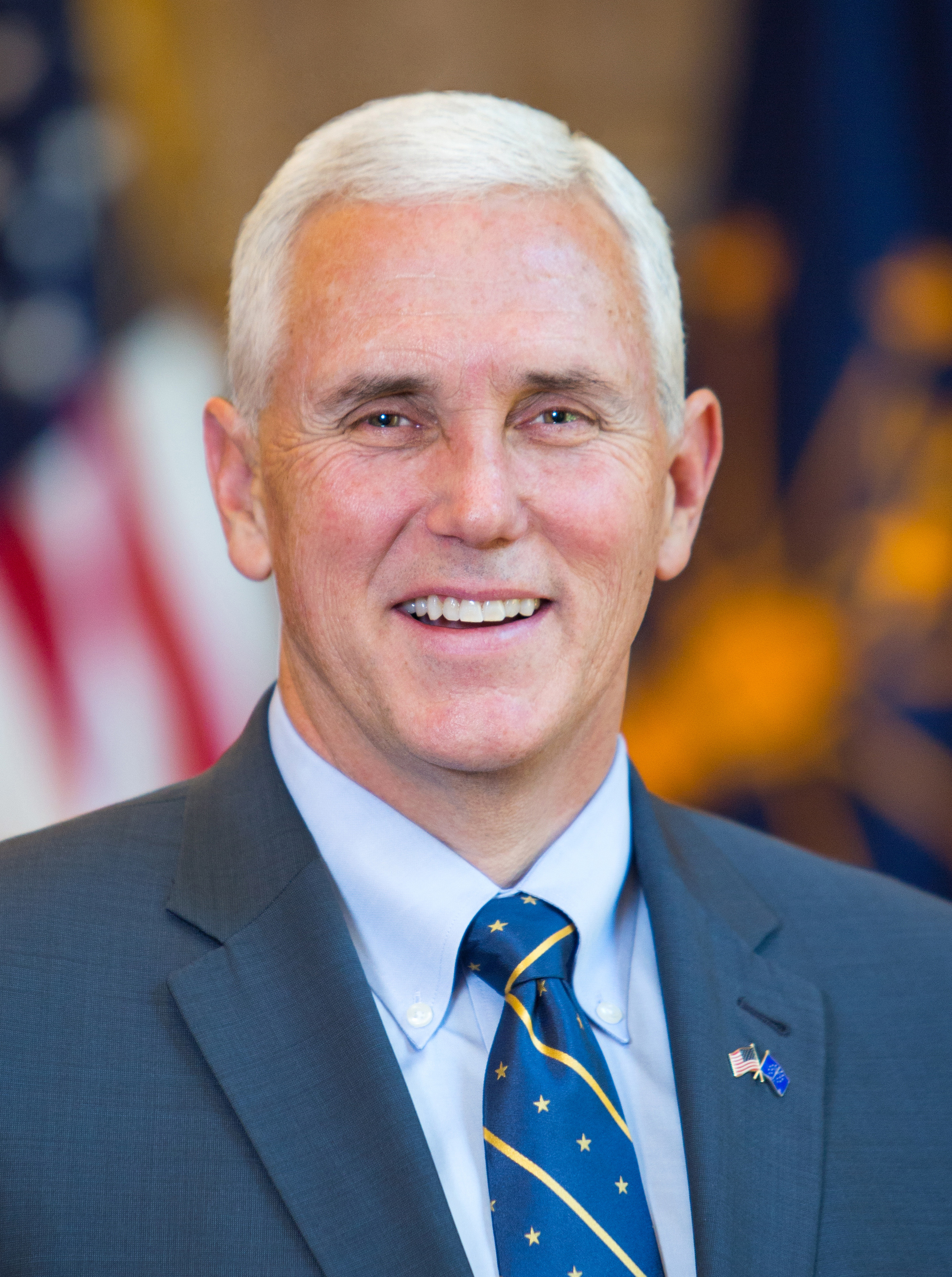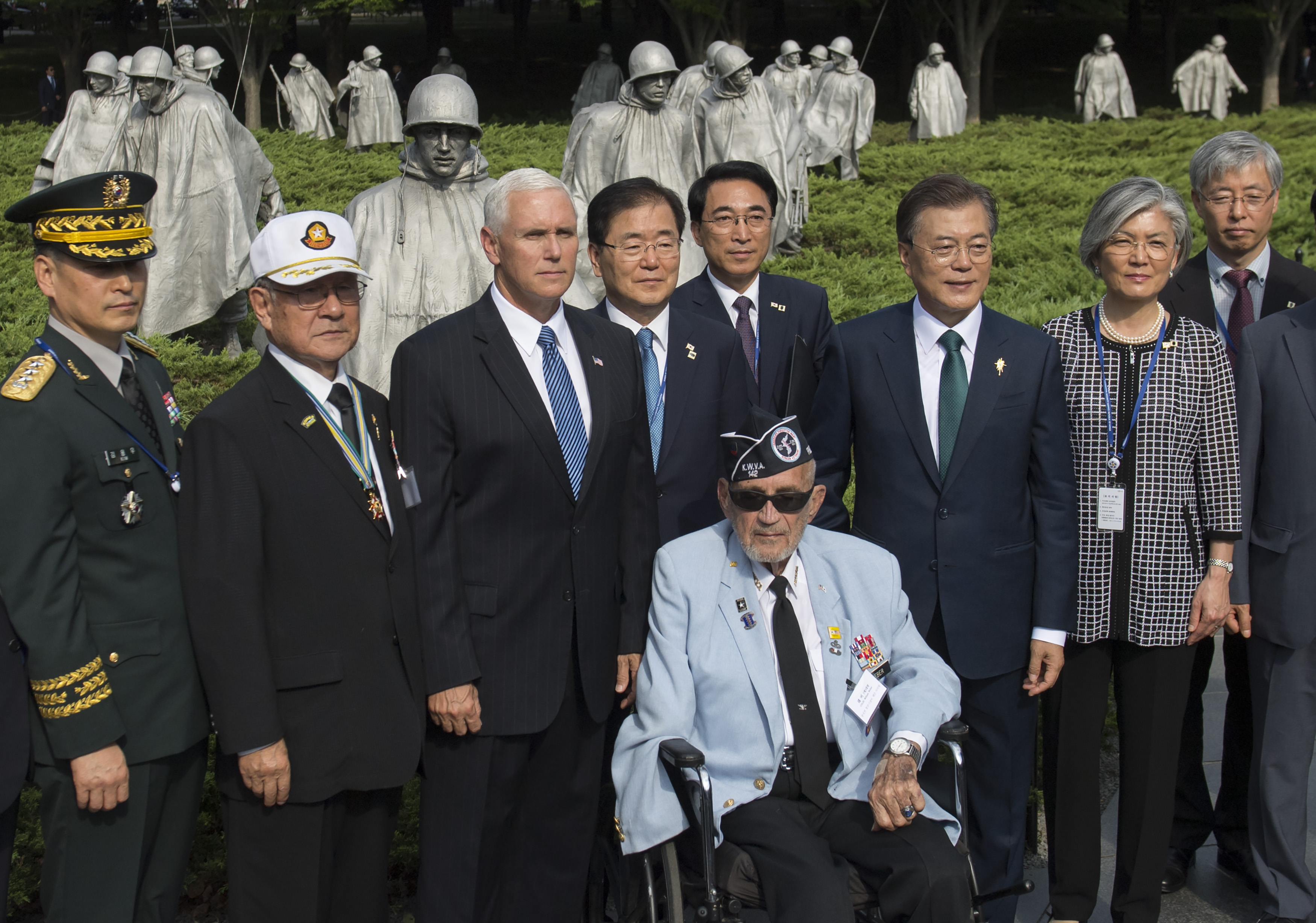Pence, Mike (1959-…), a Republican, served as vice president of the United States from 2017 to 2021. In the 2016 election, Pence and businessman Donald J. Trump, who was elected president, defeated their Democratic opponents, former U.S. Secretary of State Hillary Rodham Clinton and Tim Kaine, a U.S. senator from Virginia. In the 2020 election, Trump and Pence lost to former Vice President Joe Biden and U.S. Senator Kamala Harris of California. Prior to his service as vice president, Pence had been the governor of Indiana and served in the U.S. House of Representatives.

Early life and career.
Michael Richard Pence was born in Columbus, Indiana, on June 7, 1959. He attended Hanover College in southeast Indiana, graduating in 1981 with a bachelor’s degree in history. Following graduation, Pence worked as an admissions counselor at the school. In 1986, he earned a law degree from the Indiana University School of Law–Indianapolis (now the Indiana University Robert H. McKinney School of Law). He then worked as a lawyer in private practice.
Political career.
In 1988 and 1990, Pence ran unsuccessfully for a seat representing part of north-central Indiana in the U.S. House of Representatives. After these losses, Pence remained active in politics. He served as president of the Indiana Policy Review Foundation, a conservative-leaning public-policy research organization, from 1991 to 1993. From 1994 to 1999, he hosted a political radio show—“The Mike Pence Show”—that was broadcast throughout Indiana. He also hosted a weekly Indianapolis television program.
In 2000, voters elected Pence to the U.S. House of Representatives. He took office in 2001 and was reelected five times. As a congressman, Pence served on the House committees on foreign affairs and the judiciary. He also served as the House Republican Conference chairman, a party leadership position. Pence, an evangelical Christian, has held consistently conservative views on many issues. He took strong positions against gun control, abortion, and tax increases. He was also a vocal opponent of the 2010 health insurance reform law popularly known as “Obamacare.”
In 2012, Pence defeated John Gregg, a Democrat, to win the Indiana governorship. He took office in 2013. In July 2016, Donald Trump, after becoming the presumptive (likely) Republican presidential nominee, chose Pence as his vice presidential running mate. Trump, who had held no elective office, said he would rely strongly on Pence’s governing experience. Later that month, the pair were officially nominated for president and vice president at the Republican National Convention in Cleveland, Ohio. Pence then withdrew from his campaign to be reelected Indiana governor.
During the 2016 general election campaign, Trump and Pence debated with their Democratic rivals over such issues as civil rights, energy policy, gun control, immigration, taxes, terrorism, and international trade agreements. On November 8, Trump and Pence defeated Clinton and Kaine. As vice president, Pence helped lead the Trump administration’s efforts in 2020 to combat the COVID-19 pandemic.
In their 2020 campaign for reelection, Trump and Pence faced Biden and Harris. Days after the November 3 election, major news outlets called the election for Biden and Harris, though election results had yet to be certified. Trump and Pence refused to concede, and challenged several state results via lawsuit. On November 23, following a string of legal defeats, the Trump administration authorized the start of the formal transition to a Biden administration. The Electoral College confirmed Biden’s victory on December 14.
Pence played a ceremonial, yet important, role in the congressional certification in January 2021 of Biden’s election win. Trump, who continued to claim that widespread fraud had been committed during the election, tried to convince Pence to object to the Democrats’ victory. On January 6, while Pence was at the U.S. Capitol to affirm the election results, pro-Trump rioters stormed the building. Pence and other lawmakers were ushered to safety, but the day’s events severely strained the relationship between Pence and Trump. Pence formally confirmed Biden’s victory after Congress reconvened early on January 7.
Pence later wrote a memoir, So Help Me God (2022). In June 2023, he began a campaign to become the Republican Party’s nominee for president in the 2024 election. However, he dropped out of the race in October 2023 while trailing his rivals in fundraising and public opinion polls.

